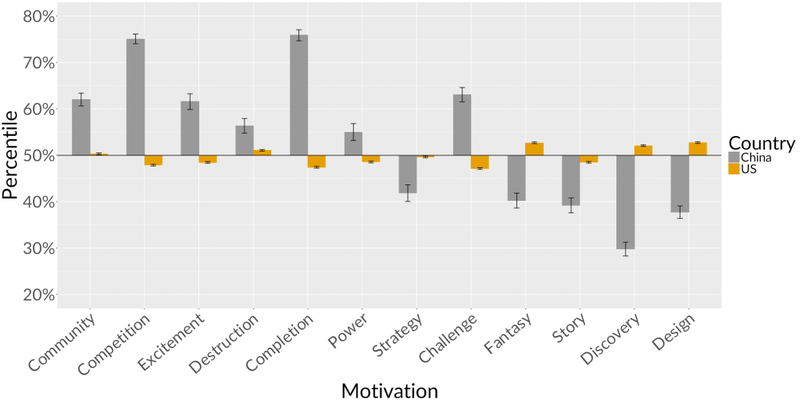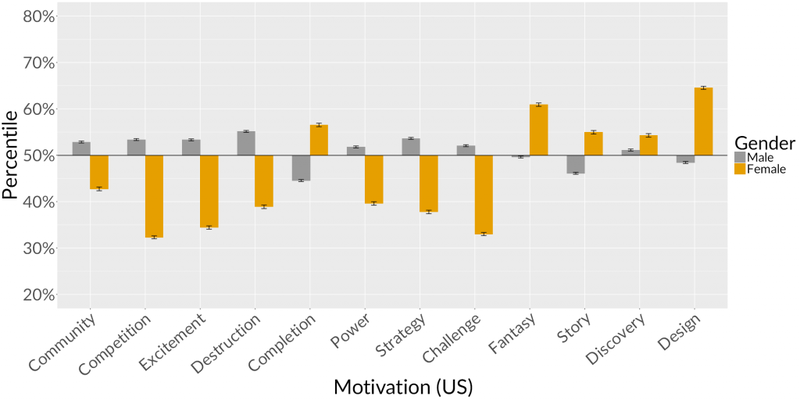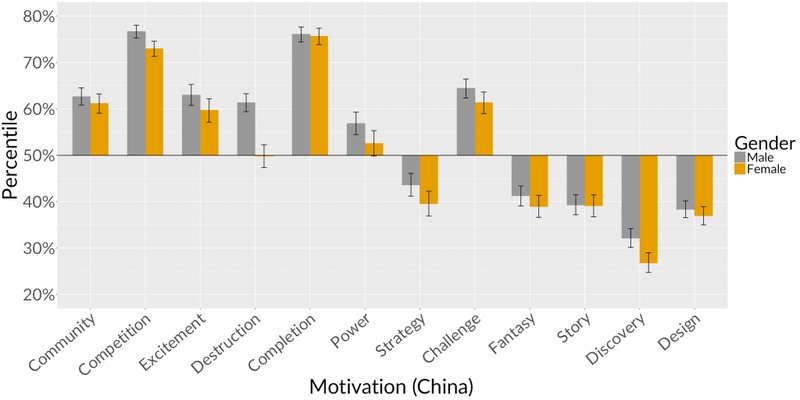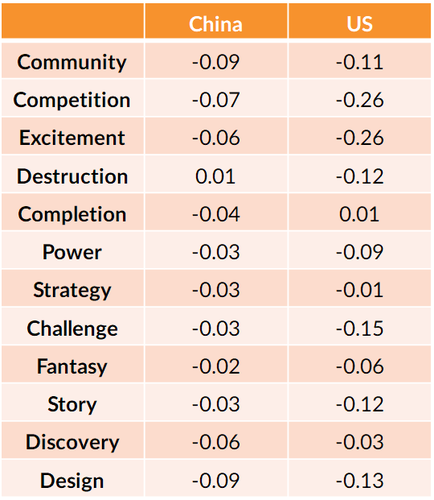
The game industry in China is one of the biggest at the moment, but the country has different game cultures and tastes compared to western countries or Japan. When foreign countries focus on console gaming, China is dominated by competitive online games and mobile gaming. The different tastes of this game certainly produce different types of players and motivations. This is evidenced by the results of research from Quantic Foundry and Niko Partners.
Reporting from Gamasutra, the two organizations built Gamer Motivation Model research to see how different the motivation to play from Chinese and US gamers when playing their favorite video games. Quantic Foundry managed to record 350 thousand gamers from all over the world, the majority of which came from America and western Europe, while Niko Partners registered 2000 gamers in China from 40 cities where gamers surveyed were gamers who were addicted to playing games.
From the results of this survey, the two organizations concluded that the majority of Chinese gamers preferred the competition. Game modes such as duels, arena matches, and ranking systems. More than 75% of the gamers surveyed liked the competitive elements of the games they played while less than 50% of US gamers cared for these competitive elements.

From this survey, Chinese gamers are shown more completionists in the sense that they are very interested in getting stars, achievements, trophies and completing each quest and loot the game offers. Behind the interest in competitive elements and completionist, they don't really care about the last 4 motivations in the table above, namely fantasy, storytelling, discovery, and design. The four motivations are more mastered by US gamers, which means gamers there are more like games with the immersive (fantasy) gaming world, interact with NPCs and play a role in stories (exploration), exploration and experimentation (discovery), and building their character according to what they want (design).
We can see the competitive feeling and completionist of Chinese gamers from popular games in the country starting from Playerunknown's Battlegrounds, League of Legends, Dota 2, and other competitive games. These games may also be popular in western countries, but games like Red Dead Redemption 2, The Witcher 3, and other story-focused games are indeed more popular in western countries than in China.
This research also discusses several other things such as differences in tastes based on gender factors and the age factor of each gamer. From the results of the survey, gender differences did not have much influence on their gaming tastes compared to gamers in the United States.
As for the age factor, the survey results show that US gamers lose their interest in competitive games with increasing age. As for gamers in China, the age factor does not really hinder their competitive appetite when playing video games. There is still a reduction according to the survey results, but the percentage is not as large as that obtained from the results.



This difference in taste makes game design in China and western countries the difference is clear. Western gamers will usually fuss when the game has a bad story, a boring game world, and mediocre production. But because Chinese gamers don't pay too much attention to these things, developers there can focus more on aspects that their audience really likes.
Comments